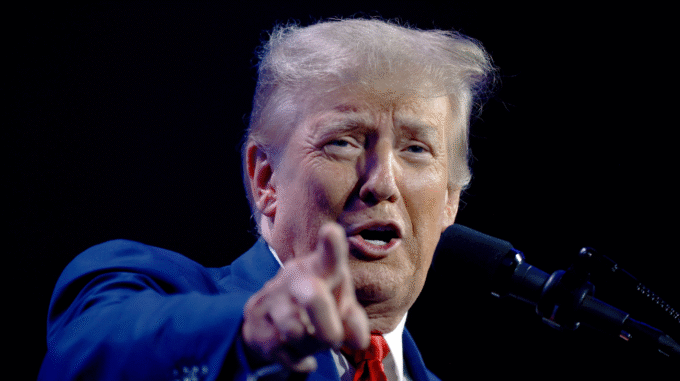Trump expressed his deep disappointment with Russian strikes on Ukraine: he called them a “shock” and the reason for the failure of negotiations

Former U.S. President Donald Trump once again voiced strong disappointment regarding Russia’s recent missile strikes on Ukrainian cities. On Friday, in the very heart of the White House—in the Oval Office—he shared his thoughts with journalists, noting that he was “shocked” to see events that hindered quick progress in resolving the conflict. According to Trump, these missile attacks, which hit several Ukrainian cities and claimed the lives of numerous civilians, came as a surprise to the American leadership. The report states that although the president hoped for a quick and successful reaching of agreements, the missile attack reversed those plans, posing a new challenge to the peace negotiations process. “I saw things that really shocked me, and that disappointed me greatly. I don’t like being surprised because it means the situation is getting out of control, and that shouldn’t happen when it comes to important issues of peace and security,” Trump said. However, he avoided directly commenting on his personal attitude toward Vladimir Putin, considering his politics or character. When asked whether he considers the Russian president “a good guy or a bad guy,” he left this topic unaddressed, noting: “As for how his administration should deal with the very stubborn Vladimir Putin—well, in this context, one should also mention Zelensky.” Overall, Trump emphasized that it is important for the U.S. to maintain a clear understanding of the situation and efforts toward diplomatic resolution of the conflict, but currently much depends on Russia’s actions and its willingness to engage in serious dialogue. At the same time, he acknowledged that recent events— missile strikes on Ukrainian cities—have made achieving a compromise significantly more difficult. Earlier this week, Donald Trump expressed his expectation that he would be able to assess the situation in a week and a half to two weeks—by then he would be able to determine whether Vladimir Putin’s words about the immediate desire to establish peace on Ukrainian land are truthful. It is known that the current U.S. leader, who previously warned the Kremlin about the risks of playing with fire, may lose patience with Moscow, as the situation is becoming increasingly tense and unpredictable. Thus, President Trump again emphasizes that understanding and diplomacy are key to resolving the conflict, but the lack of concrete steps from the Kremlin threatens even greater escalation and a deterioration of the humanitarian situation in Ukraine. His words eloquently reflect the growing disappointment among Western leaders and demonstrate the complexity of the diplomatic process during the most challenging period in Europe’s modern history.

